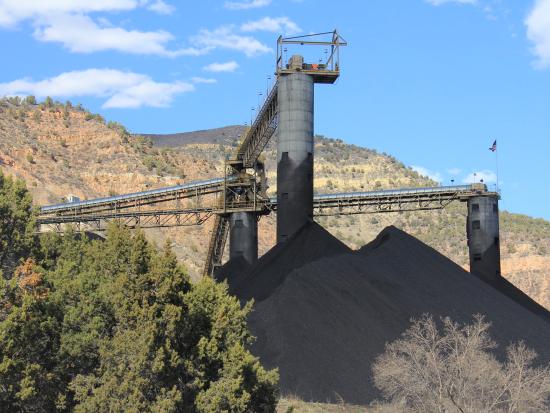
- Details
- By Native News Online Staff
The U.S. Department of the Interior today announced the availability of more than $119 million in fiscal year 2025 grant funding to support the reclamation of abandoned coal mines across the country. These Abandoned Mine Land (AML) fee-based grants, authorized under the Surface Mining Control and Reclamation Act of 1977 and administered by the Office of Surface Mining Reclamation and Enforcement (OSMRE), will support 24 coal-producing states and two tribal programs in restoring former mine sites.
Funded through fees collected on coal production, the grants aim to improve public safety, stimulate local economies, and help communities transform former coal mining lands into new opportunities for growth and development.
“These grants reflect our ongoing commitment to the people and places that have powered this country for generations,” Acting Assistant Secretary for Land and Minerals Management Adam Suess said. “We’re proud to work alongside states and tribes to turn legacy mining sites into new opportunities.”
The grant allocations are determined using a formula based on each recipient’s share of historic and current coal production. Since 1977, more than $8.6 billion in AML fee-based grants have been distributed to help states and tribes address safety and environmental hazards associated with abandoned mines.
After applying a mandatory 5.7% sequestration, the total funding available for FY 2025 is approximately $112.9 million.
States and tribes are responsible for proposing and implementing specific projects, ensuring solutions are locally driven and reflect community priorities. These grants represent a sustained federal investment in regions that played a vital role in fueling America’s industrial growth.
Selected FY 2025 AML Mandatory Grant Awards
(Full list available on OSMRE’s website):
-
Wyoming: $22.1 million
-
Pennsylvania: $18.7 million
-
West Virginia: $15.6 million
-
Illinois: $7.1 million
-
Navajo Nation: $458,655
-
Crow Tribe: $148,721
More Stories Like This
Gwich'in Tribal Governments Submit Comments Challenging Fish and Wildlife Service's Inadequate Environmental Review of Arctic Refuge Snow RoadRappahannock Tribe Challenges 9M-Gallon Water Plan
Feds release draft long-term plans for Colorado River management
Apache Leader Walks 60 Miles to Court Hearing That Will Decide Fate of Sacred Oak Flat
Rappahannock Tribe Raises Sovereignty and Environmental Concerns Over Caroline County Water Permit
Help us defend tribal sovereignty.
At Native News Online, our mission is rooted in telling the stories that strengthen sovereignty and uplift Indigenous voices — not just at year’s end, but every single day.
Because of your generosity last year, we were able to keep our reporters on the ground in tribal communities, at national gatherings and in the halls of Congress — covering the issues that matter most to Indian Country: sovereignty, culture, education, health and economic opportunity.
That support sustained us through a tough year in 2025. Now, as we look to the year ahead, we need your help right now to ensure warrior journalism remains strong — reporting that defends tribal sovereignty, amplifies Native truth, and holds power accountable.
 The stakes couldn't be higher. Your support keeps Native voices heard, Native stories told and Native sovereignty defended.
The stakes couldn't be higher. Your support keeps Native voices heard, Native stories told and Native sovereignty defended.
Stand with Warrior Journalism today.
Levi Rickert (Potawatomi), Editor & Publisher


